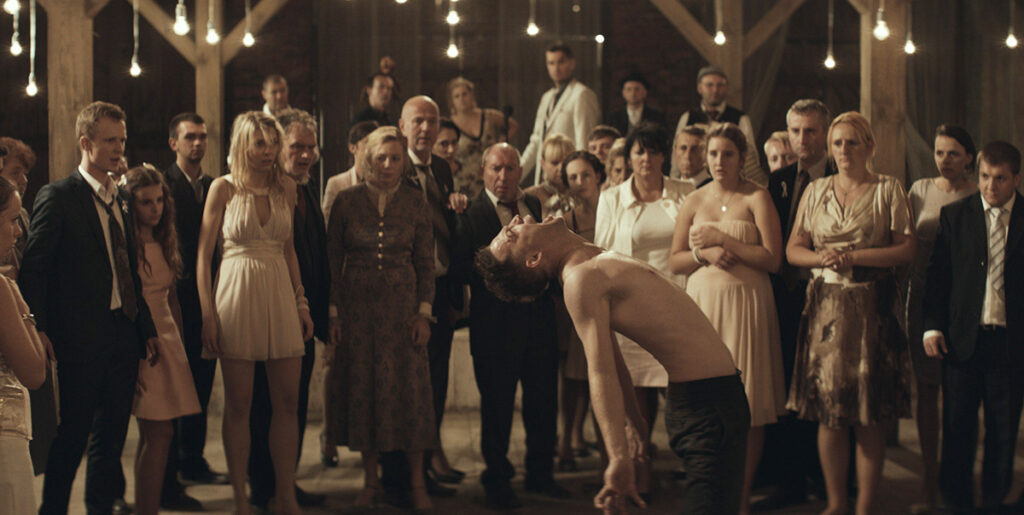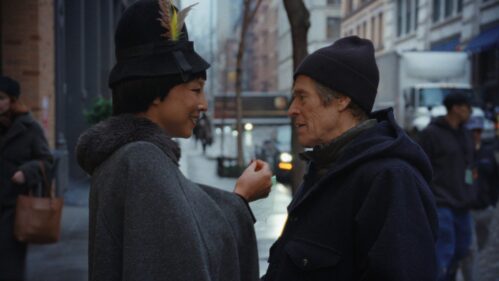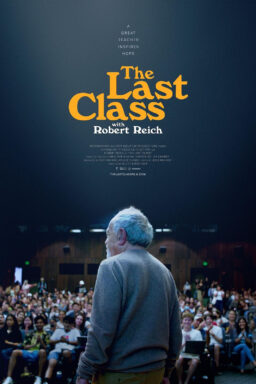Major film festivals like TIFF make for strange
bedfellows. Films that have little in common get lumped together simply because
they’ve been seen in close chronological proximity. Then again, this approach
to TIFF reporting—often called “dispatches” (and we’ll be doing many of them
over the next week along with standalone pieces on some films)—does pretty
accurately recreate what festivals are like for the average movie goer. You
jump from theater to theater, seeing films from different countries, in
different styles, and with drastically different intentions. And so, what do
these films have in common? They all premiered at TIFF on Friday,
September 11th. And that’s all the reason we need.
Here’s another excellent aspect of
fest-going—it’s sometimes the film with the least recognizable faces that makes
the greatest impact. Such is the case in this dispatch, as the best movie of
this motley crew is Marcin Wrona’s “Demon,”
a unique take on the Jewish legend of the Dybbuk that feels both deeply
rooted in cultural nightmares and refreshingly new. It’s a possession tale with
a spin, a take on the idea that marriage changes us, making us someone new,
someone unfamiliar, and the fear that comes with that act of giving up one’s
older self.
The legend of the Dybbuk is one that really
exists in all cultures—it’s the possession horror story. In this variation,
Peter (the excellent and totally committed Itay Tiran) has come from England to
a run-down cottage in Poland, in advance of his fiancée Zaneta (Agnieszka
Zulewska) and his bridegrooms. This fixer-upper is a gift from his
father-in-law, and it clearly has a lot of history. One night, Peter finds
bones on the property. No big deal, right? After a bizarre encounter, his
wedding commences, and Peter starts to completely unravel. He has visions,
speaks in tongues, and goes through what looks like epileptic fits, all under
the twinkling lights and to the sounds of clinking glasses.
“Demon” is stylish and clever from its
concept—how many men about to marry have said something along the lines of “the
old me is dead”—but it’s the execution that really matters. There’s a great
energy to the piece, from the framing of the visual compositions, to the eerie
atmosphere created by the lights hanging from the ceiling of what looks like a
barn. There’s fantastic costume design as well as a lead performance that
engages on every level. The final act isn’t perfect—it seems to end too abruptly—but
there’s too much here to like to not hope that a distributor picks it up and
brings it to a wider audience. A risky company like Drafthouse would be
perfect.

The raging, vibrant personality on display in Wrona’s
film is depressingly absent in “Every
Thing Will Be Fine,” the latest, and weakest, effort from the great Wim
Wenders. A disappointment on multiple levels, this misguided drama should, on
paper, be the kind of thing that really invigorates a filmmaker like Wenders in
that it plays, very thinly, with themes that have intrigued him before, like
grief and regret. At its core, “Every Thing Will Be Fine” is about how we deal
with the unimaginable, and particularly how artists can turn tragedies in their
lives into success.
The artist in this case is a mournful writer
named Tomas (James Franco). He’s holed up in an icy cabin at the beginning,
working on a book, and staying away from his girlfriend Sara (Rachel McAdams).
He is driving one day in a light snowstorm when a boy slides out into the road
on a sled. Tomas’ life is forever changed, as is that of the boy’s mother Kate
(Charlotte Gainsbourg), and the boy’s brother Christopher (played by Jack
Fulton young, Robert Naylor older).
At first, the tragedy at the core of Wenders’
film devastates Tomas. He spirals out of control—he leaves Sara, and tries to kill himself. After the emotional turmoil passes, his editor (a cameo from
Peter Stormare) informs him that his work has been notably better. As the years
pass, Tomas finds fame. But Kate and Christopher seem stuck in that moment.
Even Tomas seems broken, unable to find real emotion anymore, even if that
coldness has made him successful.
Almost as if Franco’s dull, half-asleep
performance is the metronome for the entire piece, everyone in “Every Thing
Will Be Fine” speaks in a flat, monotonous affect. It’s the kind of exaggerated
lack of emotion that was clearly directed and purposeful, at least in the first
half (or else I just got used to it), and it was a disastrous decision. Rarely
have I seen a film in which the rhythm seemed so resolutely off. Characters
pause in odd places. Scenes are quickly cut, while others go on forever. And
Franco is literally nodding off at points, unable to convey emotional frigidity
without looking drowsy. The dialogue is sometimes jaw-droppingly bad (“What do you do?” “I write.” “You’re a writer.”
“Yeah, I suppose I’m a writer.”) It
feels like Franco just didn’t know what to do with exchanges like that, and
gave up at some point. It’s sometimes hard to blame him, but not all the time. I
hope Wenders bounces back quickly from this one. He’s too important to cinema
(as an upcoming touring retrospective of his career proves) not to do so.

Finally, we have one of the more odd films at
TIFF 2015 (at least that I’ve seen so far), Rufus Norris’ “London Road.” It’s not often that a film falls into the category
of “True Crime Musical,” but this one qualifies. Based on the hit play of the
same name by Alecky Blythe and Adam Cork, “London Road” tells the story of the
“Suffolk Strangler,” a man who killed prostitutes in the titular
location. To craft the musical, Blythe and Cork used only transcripts of
witness testimony and interviews. In other words, all of the songs in “London
Road” sound like a recounting of facts. There’s no flowery language. It’s bizarre,
and off-putting, and yet it gets mesmerizing at times. Blythe and Cook will
layer different voices on each other, repeating key segments, like a local
noting that they feared the killer could be anyone they passed on the street.
Olivia Colman and a cameo from Tom Hardy add a
bit of star power to “London Road,” which eventually becomes a commentary on
the positive and negative impacts of community. On one hand, the neighbors of
“London Road” rally to save their neighborhoods. On the other, they ignore the
women literally put in harm’s way by having to work the sex trade.
The film is a near-miss for me, a curiosity
more than an outright success. The “verbatim musical” approach that is at first
intriguing gets less so, and the film seems to make its point quickly and
without much development. It’s the kind of piece that I imagine works better in
a small theater in Soho, the urgency of its cultural resonance mere feet away
instead of allowed the natural distance of film. And it’s the kind of thing that gets lost in one of the most crowded film festivals in the world, especially as its stars pop up in other films (Colman is in “The Lobster,” Hardy in “Legend“). Sometimes when you dig beneath those blockbuster premieres you come back with a title like “Demon.” Sometimes you come up empty.












